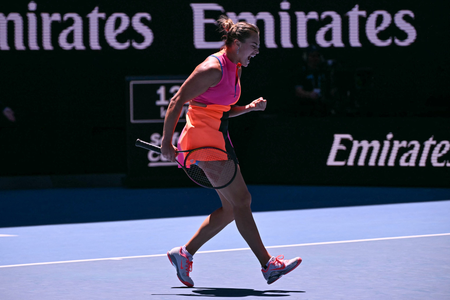
New Delhi, Feb 21 (IANS) The settling of Jannik Sinner’s doping case was “open and transparent” despite the public reaction, and the World Anti-Doping Agency (WADA) will stay open-minded and welcome public scrutiny, said its vice president Yang Yang.
Tennis men’s world No.1 Sinner twice tested positive for anabolic clostebol in March last year, which he claimed entered his system after his masseur treated a cut on his finger with a product containing clostebol and gave Sinner full body massages.
After a review of the case, WADA agreed Sinner’s explanation was scientifically plausible and well evidenced on the facts.
Sinner had been initially found by an Independent Tribunal to bear no fault or negligence and free from a ban. WADA appealed the decision to the Court of Arbitration for Sport (CAS) and later entered into a case resolution agreement with Sinner who accepted a three-month ban last week.
In an interview with Xinhua, Yang said it was understandable that many were unsatisfied with the three-month ban over two doping offenses, which many decried as too lenient.
“The whole anti-doping process is highly professional and technical, which is really difficult for many to understand,” said the former Olympic short track speed skating champion.
According to WADA, the initial decision, which found the athlete bore no fault or negligence, was wrong under the World Anti-Doping Code.
“Under the Code and by virtue of CAS precedent, an athlete bears responsibility for the entourage’s negligence,” said WADA.
“The applicable period of ineligibility for a case involving a non-specified substance [such as clostebol] where it is accepted that the athlete has no significant fault or negligence is between one and two years,” WADA explained.
However, taking into account “the level of seriousness of the violation given its specific facts” WADA considered a 12-month sanction would be “unduly severe” and invoked the case resolution agreement provision in the World Anti-Doping Code, which was introduced in 2021.
“One of its primary functions is to ensure that unique cases which do not fall squarely within the sanction framework can be adjudicated appropriately and fairly, provided that all parties and WADA agree,” said WADA in a reply to Xinhua.
The provision allows a further reduction of the ban based on the level of seriousness of the specific violation as well as the fact of the athlete’s admission of the violation and acceptance of appropriate consequences.
“Under the current Code revision, it is already proposed that the minimum sanction in case of contamination is a reprimand, so [the sanction is] three months. It is well within what is recommended for adoption at the world conference. So WADA considered a three-month ban was appropriate in Sinner case,” Yang noted. “We are pleased to have been able to deal with this matter in an open and transparent way.”
While contamination is prevalent, which may lead to more contamination cases, WADA is working to fix possible loopholes.
“As the testing methods get more advanced, more contamination cases are expected to appear. WADA is working hard to set a line between victims of contamination and the true cheaters,” said Yang.
“WADA will further promote its anti-doping education for more people to get better knowledge and try our best to ensure the review process open, transparent and fair.
“WADA will stay open-minded and welcome public scrutiny and good advice,” she concluded.
–IANS
bc/




